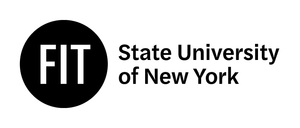Metamorphic Branding, Centers of Creation, and Big Bet Cities Define Strategies for Luxury in 2030
The Beauty Industry's Think Tank at the Fashion Institute of Technology Predicts The Future of Luxury: Global Research Insights, Emerging Trends, and New Business Models for 2030
FIT's Cosmetics and Fragrance Marketing and Management Master's Program Partners with LVMH Perfumes & Cosmetics, North America and Research Partner The Boston Consulting Group to Present Original Global Research Predicting the Future of Luxury
NEW YORK, June 8, 2015 /PRNewswire/ -- Lasting memories, "centers of creation" flagship stores, and like-minded cities will drive future sales in the luxury sector, according to new research revealed by graduating students in the Fashion Institute of Technology's (FIT) School of Graduate Studies Cosmetics and Fragrance Marketing and Management (CFMM) Master of Professional Studies program. The findings were presented by the graduates, who also are emerging beauty industry executives, at the CFMM program's annual capstone research presentations, conducted in collaboration with event sponsor LVMH Perfumes & Cosmetics, North America, and research partner, The Boston Consulting Group (BCG). The accuracy of the CFMM program's annual industry predictions has established it as "The Beauty Industry's Think Tank."
This year's exploration, titled The Future of Luxury: Global Research Insights, Emerging Trends, and New Business Models for 2030, included, for the first time, original and primary quantitative research in partnership with BCG. A survey entitled "BCG FIT Global Luxury Customer Survey" was fielded to 3,000 luxury customers in the U.S., India, and China. "This year's CFMM capstone research on the luxury sector perfectly captures the nature of FIT's unique culture of research, in which students collaborate with industry thought leaders to produce findings that are predictive of future strategies that will address the complex challenges of global consumer brands. FIT continues to evolve as a major innovation center for the global creative industries," said Professor Stephan Kanlian, chair of FIT's CFMM Program.
"As a global leader in the luxury market, LVMH is proud to partner with the FIT Cosmetic and Fragrance Marketing and Management Master's program, and, in fact, boasts a total of 12 program graduates among the LVMH ranks," said Pamela Baxter, president and CEO, LVMH Perfumes & Cosmetics, North America and president, Christian Dior Couture Inc. "In 2007, LVMH sponsored capstone research that analyzed the luxury sector, and this year, the graduating class has returned to the topic with new insights, strategies, and research. The business models that the students developed give marketers new ways to look at consumers' motivation to purchase, their desire to participate in the creation process, and the best ways to reach luxury customers in a global economy."
"It has been a pleasure to work with the graduating students of FIT's Cosmetics and Fragrance Marketing and Management Master's program," said Sarah Willersdorf, a New York-based partner at BCG. "The depth of understanding and intense intellectual curiosity demonstrated by the graduating students has meant that they were able to field interesting new primary research, as well as develop new and creative business approaches for luxury consumer goods. The resulting definition of luxury can be applied to multiple consumer goods categories, and reaches far beyond beauty and fashion."
The Future of Luxury research focuses on the evolution of the luxury sector in the year 2030 across three key areas: New Luxury Consumer Values, New Luxury Platforms, and New Luxury Epicenters.
- New Luxury Consumer Values: Future consumers will look for luxury brands that create long-lasting memories and help them lead more meaningful lives. Brand loyalty is disappearing; in fact, most consumers wouldn't care if 73% of brands disappeared tomorrow. So what will drive purchases when the human attention span is measured at merely 8 seconds, one second less than that of a gold fish?
Research Insights:
- Emotionally Charged Memories rather than status will drive luxury purchases.
- Sensory Appeal, Delayed Gratification, and Disruption are three new emotional triggers that brands can use for successful memory creation.
- Connecting with Consumers in a Meaningful Way will also drive sales in an increasingly time pressed world. The BCG FIT Global Luxury Customer Survey revealed the following Universal Values across China, India, and the U.S.:
- Family: When asked what they would do with a 25th hour in their day, 1 in 3 consumers said they would spend time with family.
- Time: 92% of respondents said that time to oneself was important to them in life.
- Health: When asked what kept them up at night, 97% said that health and well-being were most important.
Recommendations:
- Three insights were developed as strategies to ensure continued success of luxury brands.
- Consumer First: Increase investment in development of new consumer products and experiences to 8%. Leading luxury beauty brands invest only 3% today, while innovative tech companies like Google and Amazon invest 14.9% and 10.4%, respectively.
- MOODmetrics: Map the ever-changing moods of consumers as they shop in stores with infrared cameras to decode their immediate needs, even before they realize how they are feeling.
- Metamorphic Branding: For unlimited personalization, consumers can bring their purchases back to the store to be refashioned as their lifestyles change. In beauty, lip color can morph as the customer's mood fluctuates.
- New Luxury Platforms: The traditional brick and mortar retail store is at a crossroads, with lines blurring between product and experience. Customers are increasingly looking for bespoke products and experiences. Seventy-two percent of customers in The BCG FIT Global Customer Survey cite "customization" to be a key attribute for luxury products. Respecting the customer's desire for self-expression and her very limited time, the flagship of the future will offer product assortment curated to the customer's lifestyle and nearly instantaneous product customization.
Research Insights:
- Four key findings necessitate a major shift in retail:
- E-commerce growth is outpacing brick and mortar retail by nearly 5 to 1 (according to International Council of Shopping Centers). In 2014, brick-and-mortar traffic declined 8.2% in the U.S.
- 65% of retail growth is predicted to be organic/from the customer vs. door expansion. This is a shift from the last decade when the majority of retail growth in the luxury sector resulted from expansion.
- Millennials are building their own individual brands. They spend an estimated 5.4 hours per day on social media and seek experiences that allow for self-expression and self-branding. The customer is more distracted than ever before.
- Share of customer's time will emerge as the new key competitive strategy. Winning her share of time is the new way to win share of wallet.
Recommendations:
- To capture the future luxury customer's share of time across brick-and mortar channels, research suggests the transformation of four key retail pillars—assortment, service, navigation, and product—into four new elements—discovery, relationship, journey, and experience:
- Assortment becomes a vehicle for customer discovery, executed through lifestyle curation. Shoppers will seek curated retail experiences that offer a specific brand as well as other lifestyle products. The recommendation is for 80% of the product to be from the store's brand and 20% from non-competitive brands complementary to the customer's lifestyle. This 80/20 model peaks customer curiosity, providing an incentive for repeat visits.
- Sales associates become "Experience Managers." It's no longer just about sales. Through holistic knowledge of a customer's history and emotional motivations, the new Experience Manager will build a relationship and develop store loyalty with her customer, driving sales in a whole new way.
- Navigation using technology becomes high tech and high touch. Technology will enhance customer convenience and remove pain points from her experience while fostering virtual exploration of products.
- Product becomes the customer's creation: In the future, the brand will provide context, materials, and craftsmanship, while the customer will indicate the color, texture, and pattern. Think customized Prada shoes conceived, ordered, and delivered the very same day. The customer dreams and the brand creates.
- Center of Creation is the new flagship: Introducing the new global mono-brand flagship as the Center of Creation. Similar to a restaurant with an open kitchen, the customer will be invited behind the scenes to see the raw materials and the full lifecycle of product creation.
- New Epicenters of Luxury: By 2030, 600 cities will drive two-thirds of global economic growth (McKinsey). As global economic growth becomes increasingly concentrated in cities, it's crucial to rethink traditional market borders historically determined by country and region. The BCG FIT research suggests reconstructing strategies by patterning cities with similar luxury purchasing habits and consumer values, thereby enhancing predictive capabilities for the next Big Bet Cities. The new epicenters will transcend geographical location, becoming boundary-less. Think luxury without borders.
Research Insights:
- 30% of global luxury consumption happens in China, India, and Russia, representing a massive shift from traditional to emerging markets (BCG).
- However, the U.S. market has contributed three times the growth in luxury consumption as China (Bain).
- Three key factors will transform luxury marketing in 2030.
- Tourism: By 2030, the number of tourists will grow from 1 billion to 1.8 billion, and shopping will be a major destination driver according to the World Tourism Organization. Today, two-thirds of Chinese luxury purchases are done outside of China's borders (Bain).
- Technology: Online sales of luxury goods are predicted to grow from $10 billion to $23 billion in the next 5 years (McKinsey).
- Transmigration: By 2030, 21% of the wealthiest cities will be located in emerging markets, with a strong focus in China (McKinsey), as compared to today, where only 4 out of the 25 wealthiest cities are found in emerging markets. 85% of luxury apparel growth will come from cities.
Recommendations:
- Country-level management of luxury brands now must be coupled with city-level strategies.
- Introducing the Dynamic Market Scorecard (DMS): a set of metrics that will help businesses understand cities on a deeper level. The DMS serves two main purposes:
- To provide a strategic framework for the global patterning process
- To serve as a predictive model for future luxury growth.
- Introducing the Dynamic Market Scorecard (DMS): a set of metrics that will help businesses understand cities on a deeper level. The DMS serves two main purposes:
- DMS comprises three key categories:
- Market Dynamics: Takes into consideration the number of high worth individuals, luxury purchases by tourists, and the city's distribution resources.
- Individual Dynamics: Identifies consumer nuances within each city, including mobile penetration and e-commerce spending.
- City Dynamics: Measures a city's luxury consumption "maturity level," categorized by the following evolution: Emerge, Takeoff, Accelerate, Thrive, and Mature.
- The 3 R's of New Management
- Restructure the Business: Cities align with a similar DMS into Big Bet Cities, rather than operate in silos by region or country.
- Consider overlooked cities like Chicago, Mexico City, Istanbul, and Mumbai.
- Chicago has the fifth highest penetration of millionaire and mass affluent households globally (BCG).
- Istanbul grew 15% in luxury sales in comparison to 2% seen in the rest of the world in 2014 (BCG).
- Relocate Talent: Top talent must be relocated to BIG BET Cities, given their scale and importance. In the future, a city manager of Shanghai should hold a higher title in the organization than the country manager of Switzerland.
- Reallocate Resources: Create City P&Ls and City Budgets for new City Managers to leverage and optimize resources with similar Big Bet Cities.
- Consider overlooked cities like Chicago, Mexico City, Istanbul, and Mumbai.
- Restructure the Business: Cities align with a similar DMS into Big Bet Cities, rather than operate in silos by region or country.
Full research white papers for The Future of Luxury, along with white papers for past presentations, are available at fitnyc.edu/5518.asp.
Photographs of the event are available at http://bit.ly/1FFFvNz.
About the Fashion Institute of Technology (FIT)
Fashion Institute of Technology's Master of Professional Studies (MPS) in Cosmetics and Fragrance Marketing and Management (CFMM) program, one of seven advanced degree programs in FIT's School of Graduate Studies, was developed in collaboration with industry as a leadership development program for outstanding mid-career executives. Luxury firms (such as Chanel, Estée Lauder, and LVMH) and consumer packaged goods companies (including Beiersdorf, L'Oréal, Procter & Gamble, and Unilever) nominate talented emerging executives to participate in the program. The curriculum combines strategic business skills and specialized creative and product innovation skills with intensive global field studies in Europe and Asia. Executive mentors from industry and a personalized development plan are part of a tailored management curriculum that develops future leaders for the sector.
As part of the research focus in the School of Graduate Studies at FIT, the graduate program has become the beauty industry's recognized think tank, producing high level research each year that is presented to an audience of 700 executives and media, as well as in specialized panels, symposia, and forums in both academia and industry.
FIT is a leader in career education in art, design, business, and technology, with a wide range of programs that are affordable and relevant to today's rapidly changing industries. A college of the State University of New York, FIT offers nearly 50 majors leading to the AAS, BFA, BS, MA, MFA, and MPS degrees. For more information, visit www.fitnyc.edu.
About LVMH Perfumes & Cosmetics
LVMH's Perfumes & Cosmetics activities benefit from exceptional dynamism that relies on both the longevity and development of key lines, and on the boldness of new creations. The brands cultivate what makes them unique and is guaranteed to make them stand out for their devotees in a highly competitive global market. The success of the Perfumes & Cosmetics division depends on finding the right balance between major historic Houses such as Parfums Christian Dior, Parfums Givenchy, and Guerlain, and young brands with strong potential like Benefit Cosmetics, Fresh, and Make Up For Ever. All are driven by the same values: a quest for excellence, creativity, innovation and perfect mastery of their image.
About The Boston Consulting Group (BCG)
The Boston Consulting Group (BCG) is a global management consulting firm and the world's leading advisor on business strategy. We partner with clients from the private, public, and not-for-profit sectors in all regions to identify their highest-value opportunities, address their most critical challenges, and transform their enterprises. Our customized approach combines deep insight into the dynamics of companies and markets with close collaboration at all levels of the client organization. This ensures that our clients achieve sustainable competitive advantage, build more capable organizations, and secure lasting results. Founded in 1963, BCG is a private company with to 82 offices in 46 countries. For more information, please visit bcg.com.
Contact:
Cheri Fein/FIT
212 217-4718
[email protected]
Christy McCuaig/LVMH
917 769-1690
[email protected]
SOURCE Fashion Institute of Technology
Related Links
WANT YOUR COMPANY'S NEWS FEATURED ON PRNEWSWIRE.COM?
Newsrooms &
Influencers
Digital Media
Outlets
Journalists
Opted In





Share this article